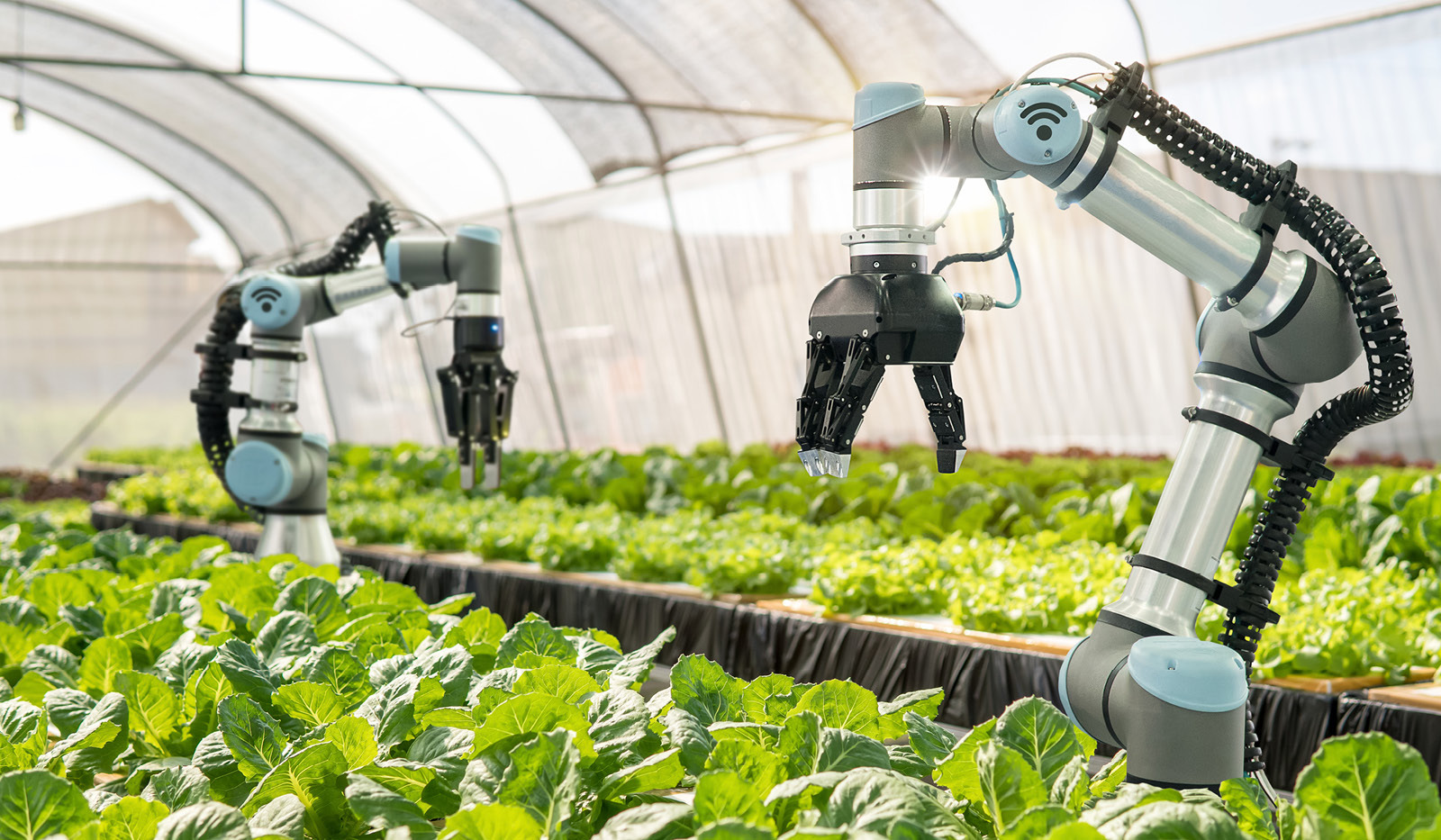Smart Farming is the Future of Agriculture
2022/09/28

Image by Pand P Studio on Shutterstock
Smart farming is the future of agriculture
According to the United Nations (UN), the world’s population is expected to reach approximately 9.7 billion by 2050. With this increasing population, agricultural demand is expected to increase exponentially. According to the Food and Agricultural Organization (FAO), agricultural production will need to increase by 70% to feed a population of this projected size.
To ensure that the growing food needs of the population are met, the agricultural industry is turning towards agricultural technology, or Agri-Tech, to convert traditional farms into smart farms. Efficient and intelligent farms, smart farms, leverage technology such as the Internet of Things (IoT), Artificial Intelligence (AI) and robotics. In 2020, the smart agriculture industry was valued at US$ 13.8 billion, and it is expected that by 2026, it will reach a market size of US$ 34 billion.
Smart farming enables farmers to access real-time data, such as soil moisture, humidity levels, crop health and more, through devices such as drones and sensors. The generated data allow farmers to take the right actions with their crops to enable better growth and cultivation. Smart farming will mitigate farmers' challenges in increasing their quality, production and yield.
For example, Tome, a city in Japan located within the Miyagi prefecture, is well-known for its rice production. The local agricultural cooperative, JA Miyagi Tome, has successfully transitioned into using drones to tackle the labour shortage and increased its profits and productivity. Japan's agriculture industry faces serious labour shortage issues, as the country has a large elderly population, and the younger generations prefer to live in the cities. Through farming drones, JA Miyagi Tome has tackled this human labour issue and also found a way of producing rice in an environmentally friendly manner with minimal water, pesticides and fertilisers.
The drones have helped decrease water usage to 1% of what was used before the implementation of smart farming—a significant reduction. In boosting efficiency, drones are also able to perform farming duties at a much faster rate. For example, farming drones can spray a 1-hectare field in 10 minutes compared to the 90 minutes it takes using conventional methods. This technology also allows farmers to measure the height and colour changes of the crops, enabling them to make insightful decisions on applying pesticides and fertilisers, making for a more efficient farming process.
In April of this year, LG CNS, a subsidiary of LG Corporation from South Korea, announced that it had joined the South Korean Government's smart farming project and would be building an artificial intelligence-based platform. This platform will serve as a guideline for high-yielding and efficient farming. Together, they plan to develop a smart farm on 54.3 hectares of farmland in the southwestern rural city of Naju by 2023. LG CNS's platform will collect and analyse data on the whole farming process, including studying soil conditions and moisture levels, weather, crop growth, irrigation and damage from diseases. The data will be collected by deploying emerging technology such as sensors, IoT and drones. The software will also offer agricultural machine management services using drones and driverless tractors, so farmers can work remotely without physically going into the field.
Climate change and global warming are the biggest threats to our planet. With Earth experiencing heavy rainfalls, heatwaves, droughts, and other natural disasters, a collective effort is required to counter the adverse effects of these events on the agricultural supply chain. With the help of technology and general awareness, the agricultural industries will be able to increase yields, produce better goods, minimise human labour, and at the same time be well-equipped to handle crises that arise from natural disasters.
